Hey there, fellow guinea pig enthusiasts!
Are you looking for some fruity variety to add to your furry friend’s diet?
Well, you might be wondering, can guinea pigs eat peaches?
We’ve got the lowdown on whether this delicious fruit is a safe and healthy option for your little buddy.
So, sit tight, and let’s find out if peaches are a treat that can make your guinea pig squeal with delight!
Can Guinea Pigs Eat Peaches?
Yes, guinea pigs can eat peaches in moderation. Peaches are a good source of vitamin C, which is essential for guinea pigs, as they cannot produce this vitamin on their own. However, peaches are also high in sugar and should only be given as an occasional treat, in small amounts.
It’s important to remove the pit, as it can be a choking hazard and contains a small amount of cyanide, which is toxic to guinea pigs.
As with any new food, introduce peaches slowly and in small quantities to ensure that your guinea pig can tolerate them.
Are Peaches Good for Guinea Pigs?

So we know that Guinea Pigs can eat peaches, but are they good for them? These little fruits are jam packed full of goodness, that’ll help keep our piggies nice and healthy.
Let’s look into the benefits of adding peaches to your Guinea Pigs diet…
High In Vitamin C
Peaches are full of Vitamin C, which is a very good thing for our guinea pigs. In order to be healthy and also prevent scurvy, guinea pigs need 10-30 mg of vitamin C each day.
The problem is that they are like humans, and not able to produce vitamin C naturally.
This is why they need fruits and veg in their diet to provide them with vitamin C.
Not only that but Vitamin C also helps maintain;
- Healthy cartilage
- Fur
- Cell Function
- Regulates their metabolism
- Aids in their digestion
- Boosts immunity
Now peaches should not be your guinea pigs only source of Vitamin C. It is however a great treat and also offers a bit more variation to their diet.
Contains High Amounts of Antioxidants
Another reason why you should let your guinea pigs eat peaches is because it’s full of antioxidants. This also includes letting them eat the skin.
Not to get too technical but antioxidants help to not only protect your guinea pig from diseases but also slows down the aging process. It does this by stopping free radicals from forming.
It does also contain antioxidants known as carotenoids and caffeic acid. These are said to be anti cancer antioxidants. These should help to lower the risk of cancer in your guinea pigs.
Low Amounts Calcium and Phosphorous
Calcium and Phosphorus are very important for our guinea pigs health, although to much can cause problems. If they do get too much calcium then this can increase the risk of bladder/kidney stones.
Peaches only contain a small amount of these nutrients, making peaches a good alternative for your guinea pig to eat.
Low In Fat
Since guinea pigs are not as active as other pets and they spend a lot of the time eating, it increases the risk of them getting heart disease or suffering from obesity.
You want to make sure they have a high-fiber but low fat diet
Peaches are low in fat and also have a low level of cholesterol. In moderation, these can make for a nice treat that your piggies will love.
High Water Content
The only drink that your guinea pig needs is water.
In the summer months it can be tough to ensure they get enough water intake.
Giving your guinea pigs peaches to eat can be a great way to get more water in their bodies.
They’re 80% water, so an excellent way of hydrating your piggies.
Rich In Nutrients
As mentioned before, 80% of a guinea pigs diet is hay. The remaining 20% would be pellets and vegetables, with some fruits added as a treat.
It’s this 20% that helps to give your guinea pigs essential nutrients that it might not get from the hay.
Luckily peaches are full of nutrients such as;
- Vitamin K
- Vitamin E
- Magnesium
- Manganese
- Folate
- Zinc
- Iron
- Potassium
- Choline
- Niacin
These nutrients are beneficial for your guinea pigs overall health but also helps to boost their energy and recovery if they’re sick.
Peaches are also great for baby guinea pigs to eat, as it helps give them their growth and development. Moderation is however key.
What are the Dangers of Guinea Pigs Eating Peaches?
Like with many things, giving your guinea pig too much peach to eat could be harmful. Let’s go through things that you need to think about when giving them some peaches.
High Amounts of Sugar
One thing about peaches and many fruits is that they do contain a high amount of sugar. This is why even though they are safe for guinea pigs to eat, you should only allow them to eat a small amount.
Sugar is something that guinea pigs are not able to process and too much can cause digestive issues.
As already mentioned, Guinea Pigs are prone to getting overweight. Too much sugar can increase the risk of obesity and diabetes.
High Amounts of Acid
Peaches do have a high amount of acid in them, which is why your guinea pigs should only have a small amount.
Guinea Pigs are allergic to acidic foods, so having too much can cause sours and even fungal infections.
Pesticides and Other Chemicals
Its really important to wash the peach before giving it to your Guinea Pig to eat. They may have pesticides or other chemicals on them from when they were farmed.
This can be very harmful to your guinea pig’s digestion and overall health.
I would recommend removing the skin completely. Unless they’re organic or you’ve grown them yourself. I would still wash them completely though to ensure the skin is free of any chemicals.
How to Introduce Peaches into Your Guinea Pig’s Diet?
The first thing you need to think about is your current guinea pigs weight. Peaches are higher in sugar. If your piggies are closer to being overweight, you might not want to let them eat peaches.
Like with any new food, you need to gradually add it to their diet.
Give them a tiny piece of peach once a week for a couple of weeks.
Keep an eye on negative changes such as;
- Loose stools
- Change in behavior
- Difference in eating habits
If any of these happen then stop giving them peaches.
We have to do this as even small changes can have a massive impact on their digestion. Remember each guinea pig is different, one of your piggies might love peaches to eat. Whereas another might not be able to eat them.
After a couple of weeks, you can then increase the amount you give them.
Remember to still limit the amount of peaches your guinea pig eats. They should just be given as a treat.
What Serving Size of Peaches Should Guinea Pigs Eat?
Once you know that your guinea pig can eat peaches, you need to be mindful of how much they get each time.
Like with many fruits, they should only be given once or twice a week. (Remember, this is instead of other fruits)
Also, if you do give them peaches twice a week, don’t give it to them right after each other. Make sure to give it a good couple of days before letting your guinea pigs eat peaches again.
In terms of serving size, you should only give them a couple of slices. Hopefully you like peaches as you’ll probably have plenty left over.
How to Prepare Peaches for Guinea Pigs?
The great thing about guinea pigs eating peaches is that they don’t require too much preparation.
The main thing you need to do is make sure you give the peach a good wash. This will remove any pesticides or chemicals that might be on the skin.
It’s important that the peach is room temperature. They shouldn’t be served straight from the fridge as Guinea Pigs cannot manage extreme cold temperatures.
Slice the peaches thinly and serve to your guinea pigs to enjoy!
One thing to remember is to make sure you have tunnels, games and a big cage. Like with many fruits peaches do contain a lot of sugar, so you need to make sure your piggies get plenty of exercise.
Can guinea pigs eat peach skin?
Yes, Guinea Pigs can eat peaches and their skin. In fact the skin is one of the most nutritious parts of the peach. It’s important that you wash the skin of the peach before you let your guinea pigs eat it. As there could be traces of pesticides or fertilizers.
Can guinea pigs eat peach pit?
No, you should not let your guinea pigs eat peach pit. The pit is just too hard for your piggies to bite them. Plus if it did crack then it could become a choking hazard. You may not know this but the pit also contains a trace of cyanide, which could be very harmful to your piggies.
Can guinea pigs eat canned peaches?
No, Even though Guinea Pigs can eat peaches, they cannot eat canned peaches. The reason behind this is because canned food will usually contain chemicals or preservatives. These are put in to help them last longer. It is best to avoid giving them canned peaches.
Can cavies eat dried peaches?
Yes and no…
There are no real health risks to your guinea pigs eating dried peaches, although they do lose some of the nutrients during the drying process.
You often find that dried fruit does have more sugar, which can increase the risk of weight gain and even conditions such as diabetes.
It would be much better for your guinea pigs if you have them fresh peaches to eat.
FAQ
Are white peaches better than regular peaches?
This is a tough one, as white peaches are less acidic than normal peaches but they’re also higher in sugar content.
Due to the sugar content, you would still only want to feed your guinea pigs white peaches once a week.
Final Thoughts on Can Guinea Pigs Eat Peaches?
So can guinea pigs eat peaches? The answer is yes but within reason. You need to make sure that you do limit the amount they have, ideally a couple of slices once or twice a week. It’s important to also make sure that you only let them eat the fruit itself and the skin if it’s been washed. Never let them eat the pit.
So why not give your piggies a little peach to try. Its jam is packed full of essential nutrients. You know you’re giving them a treat they enjoy but are also getting additional benefits. Again just limit it due to the sugar content.
Other Fruits That Guinea Pigs Can Eat
-
can guinea pigs eat peaches
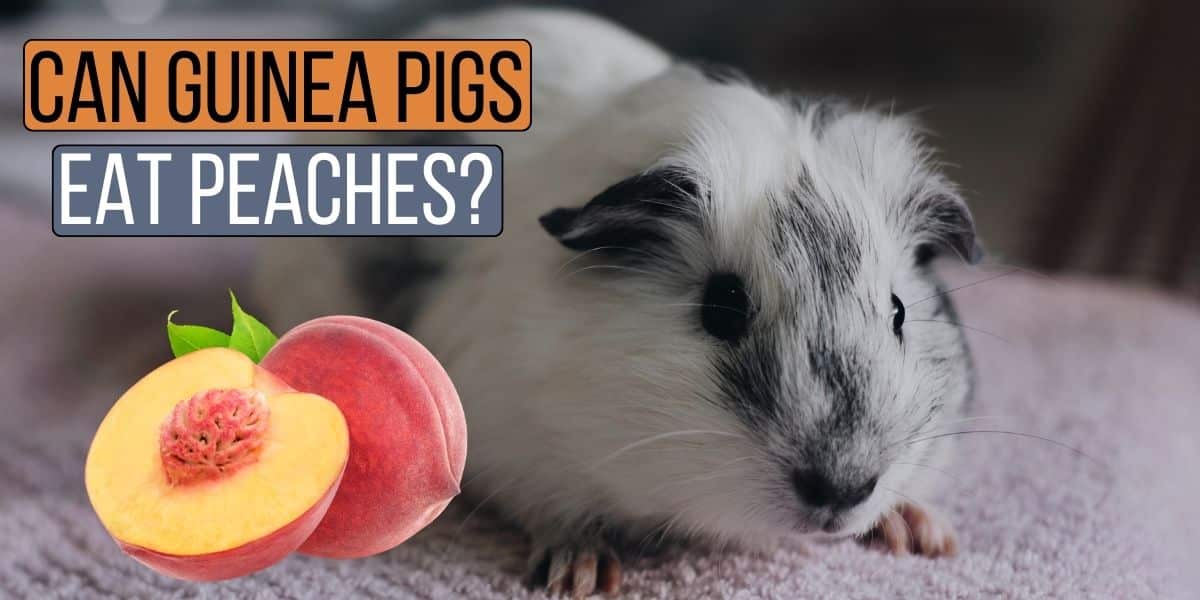
Hey there, fellow guinea pig enthusiasts! Are you looking for some fruity variety to add to your furry friend’s diet? Well, you might be wondering, can guinea pigs eat peaches? We’ve got the lowdown on whether this delicious fruit is a safe and healthy option for your little buddy. So, sit tight, and let’s find…
-
Can Guinea Pigs Eat Pineapple?
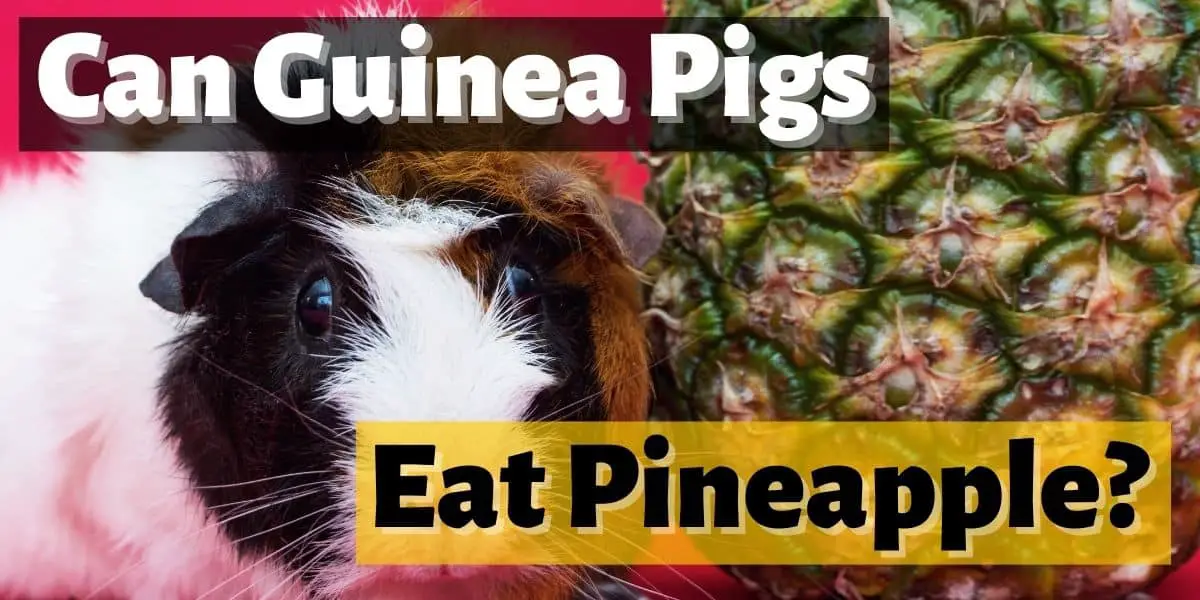
Let’s get straight to the point, can Guinea Pigs eat pineapple? Yes they can, although within moderation. (like most good things right?) There is a lot more to the answer than that. You might want to know how often they can have pineapple, or how much. Not only that but what part of the pineapple…
-
Can Guinea Pigs Eat Avocado?
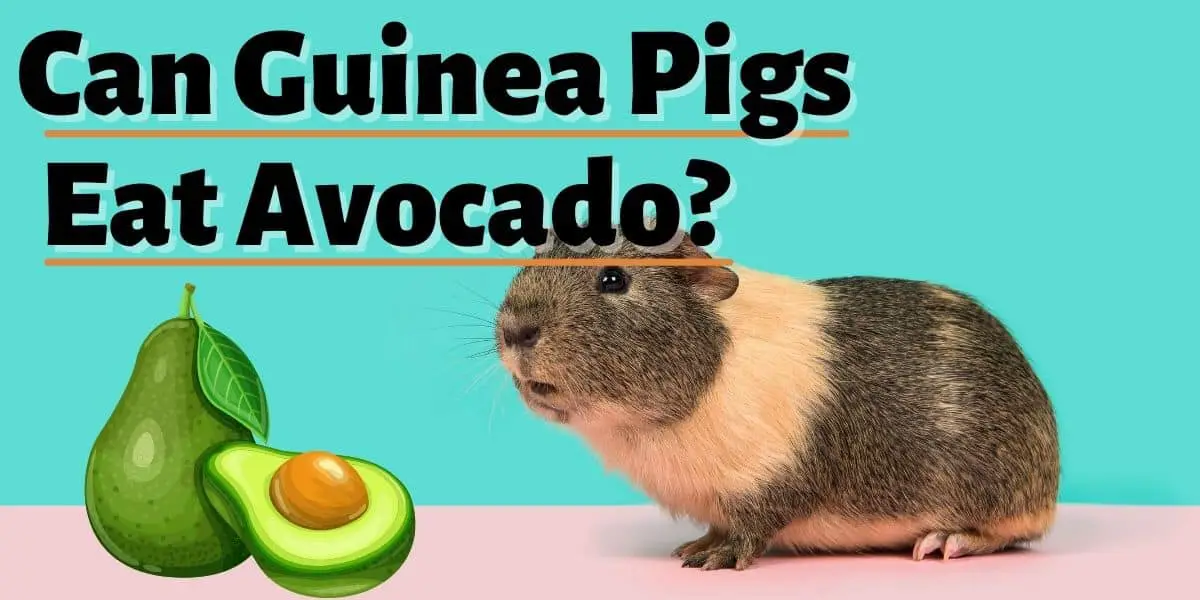
Guinea pigs should not eat avocado as they contain Persin which is poisonous and can cause digestive problems, urinary problems and even death.
-
Can Guinea Pigs Eat Pears
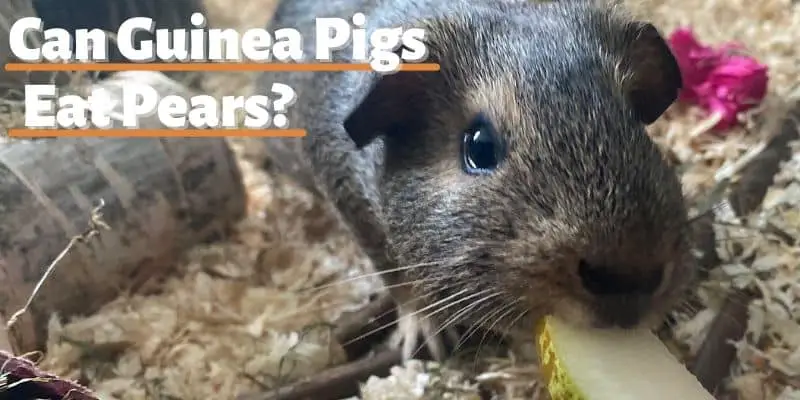
If you’re like me, you probably think of pears as a healthy snack for humans. But what about guinea pigs? Can guinea pigs eat pears? The answer is yes – but theres more…
-
Can Guinea Pigs Eat Strawberries, the leaves and Strawberry Tops?
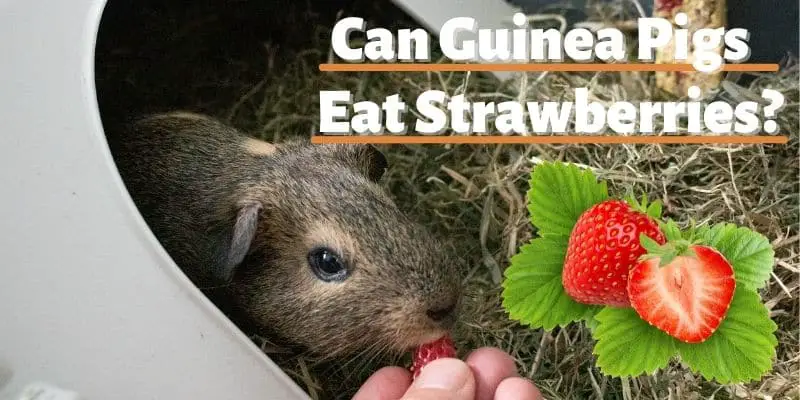
Can guinea pigs eat strawberries? Yes, they can! Strawberries are a great source of Vitamin C and other nutrients for guinea pigs. There are somethings you need to consider.


